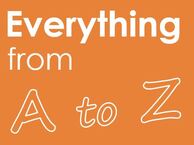ACADEMIC LISTENING TEST PRACTICE
THE EUROPEAN UNION
THE EUROPEAN UNION
For Students Preparing for Academic Tests / IELTS and TOEFL
Listen as you read the script.
Playing Time: 2 minutes 18 seconds
The European Union, the EU, is a political and economic union of 27 European countries, that are located primarily in Europe. The EU was established in the aftermath of World War II, with the aim of promoting peace, stability, and economic cooperation, among its member countries. The most recent country to join the EU was Croatia, in July 2013. The headquarters of the EU is in Belgium.
One of the key features of the EU, is the single market, which allows for the free movement of goods, services, capital, and people, among member countries. This has led to increased trade and investment among EU countries, helping to boost economic growth, and prosperity.
The EU also has a common currency, the euro, which is used by 19 of its member countries. This has helped to further promote economic integration, and stability, within the EU. In addition to its economic functions, the EU also plays a role in promoting cooperation on issues such as foreign and security policy, justice and home affairs, and environmental protection. The EU has its own institutions, including the European Parliament, the European Commission, and the European Council, which help to shape, and implement, EU policies.
Despite the many benefits of the EU, it has faced a number of challenges in recent years, including the Eurozone debt crisis, the refugee crisis, and the UK's decision to leave the EU, known as Brexit, in 2020. These challenges have highlighted the need for the EU to address issues of inequality, security, and political integration.
Overall, the EU is a complex, and multifaceted, organization, that has had a significant impact on the countries and people of Europe. Its efforts to promote peace, stability, and economic prosperity, have without a doubt, made it an important player on the global stage.
One of the key features of the EU, is the single market, which allows for the free movement of goods, services, capital, and people, among member countries. This has led to increased trade and investment among EU countries, helping to boost economic growth, and prosperity.
The EU also has a common currency, the euro, which is used by 19 of its member countries. This has helped to further promote economic integration, and stability, within the EU. In addition to its economic functions, the EU also plays a role in promoting cooperation on issues such as foreign and security policy, justice and home affairs, and environmental protection. The EU has its own institutions, including the European Parliament, the European Commission, and the European Council, which help to shape, and implement, EU policies.
Despite the many benefits of the EU, it has faced a number of challenges in recent years, including the Eurozone debt crisis, the refugee crisis, and the UK's decision to leave the EU, known as Brexit, in 2020. These challenges have highlighted the need for the EU to address issues of inequality, security, and political integration.
Overall, the EU is a complex, and multifaceted, organization, that has had a significant impact on the countries and people of Europe. Its efforts to promote peace, stability, and economic prosperity, have without a doubt, made it an important player on the global stage.
Note: For more cool ESL resources about countries, visit my All Things Topics site.


